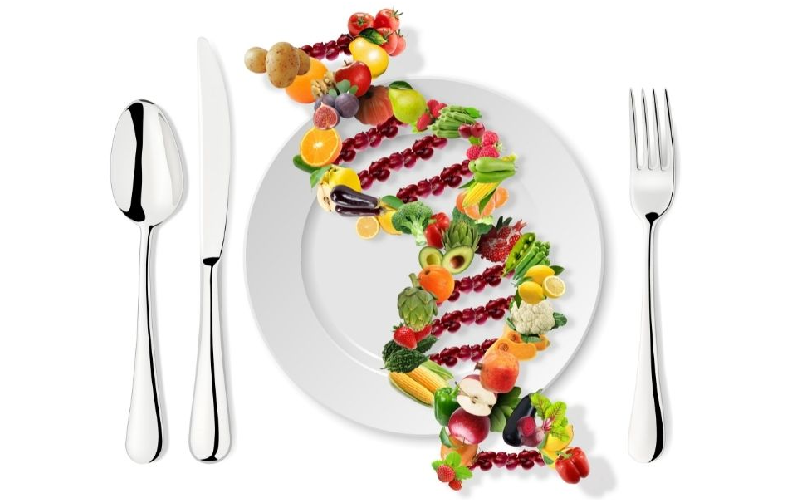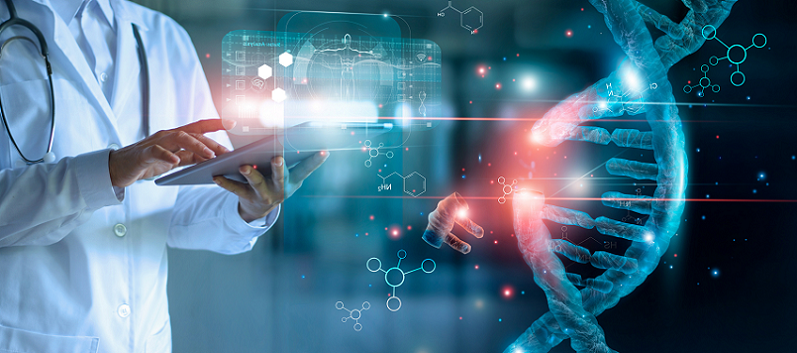
Nutrigenomics is where science seeks to interweave the complex threads of our diet and genetic makeup. As our understanding of human genetics has evolved, we’ve started to explore the intriguing possibility that our DNA might just hold the key to individualized dietary recommendations. But like any novel field of study, nutrigenomics is not without its share of controversy and debate.
Contents
Introduction to Nutrigenomics
The concept of ‘you are what you eat’ might just be getting a whole new definition with the advent of nutrigenomics. Before we dive deeper into this fascinating field, it’s essential to understand what nutrigenomics is and how it has evolved over time.
Definition of Nutrigenomics
Nutrigenomics, also referred to as nutritional genomics, is an emerging field of science that studies the relationship between human genome, nutrition, and health. The word is a blend of ‘nutrition’ and ‘genomics’, which essentially represents the intersection of these two sciences. The fundamental aim of nutrigenomics is to use the understanding of one’s genetic makeup to provide personalized dietary advice, which could potentially lead to better health outcomes, and prevent or even treat certain diseases.
The Concept: Linking DNA and Diet
The premise of nutrigenomics is built on the idea that the food we consume can interact with our genes, influencing their expression and thus affecting our health. Different individuals might respond differently to the same foods or nutrients due to variations in their genetic makeup. These genetic variations can affect how our bodies metabolize food, absorb nutrients, and respond to certain dietary compounds. This intricate interaction between our genes and diet forms the foundation of nutrigenomics [1].
The Historical Context and Evolution of Nutrigenomics
The concept of individualized nutrition isn’t new. Over the centuries, physicians and scientists have been intrigued by the observable differences in individuals’ responses to certain foods and diets. However, it wasn’t until the completion of the Human Genome Project in 2003, when the entire human genetic blueprint was sequenced, that the scientific community began to consider seriously the potential of personalizing nutrition based on genetics. With the rapid advancements in genomics and bioinformatics technology, the field of nutrigenomics has witnessed significant growth and interest in recent years, promising a more personalized approach to nutrition and health.

The Science Behind Nutrigenomics
While the fundamental idea of nutrigenomics is conceptually straightforward, the scientific underpinnings are complex and multi-layered. Let’s peel back the layers of the nutrigenomic onion and delve into the scientific processes that make this all possible.
Overview of Human Genomics
To understand nutrigenomics, it’s important first to understand human genomics. Each person’s genome – the complete set of DNA – is unique and consists of about 20,000-25,000 genes. These genes provide instructions for making proteins, which perform a variety of functions in the body. Variations in these genes can influence how proteins function, which in turn can impact how our bodies respond to different nutrients [2].
Dietary Influence on Gene Expression
It’s not just the genes themselves that matter, but also how they’re expressed. Genes can be ‘turned on’ or ‘off’, or their activity can be ‘upregulated’ or ‘downregulated’. This is where diet comes into play. Certain foods and nutrients can influence gene expression. For example, omega-3 fatty acids, found in fish, have been shown to upregulate genes that are involved in controlling inflammation in the body.
Personalized Nutrition Based on Genetic Variations
These individual variations in genes and their expressions are what drive the concept of personalized nutrition in nutrigenomics. For instance, some people carry a version of a gene that makes them more likely to have high cholesterol when their diet is high in saturated fats. For these individuals, personalized dietary advice would involve limiting saturated fat intake. By understanding these genetic variations and how they interact with diet, scientists aim to provide more accurate and individualized dietary recommendations [3].
Case Studies Demonstrating the Effectiveness of Nutrigenomics
Several studies have showcased the potential benefits of nutrigenomics. One example is the study conducted on Apolipoprotein E (APOE) gene. Different variations of this gene are associated with different responses to dietary fat. People with the APOE4 variant have a higher risk of developing heart disease and Alzheimer’s, and research has shown that a low-fat diet may be particularly beneficial for these individuals.
Another example is a gene called MTHFR, variations of which can affect folate metabolism. People with certain variations might benefit from increased dietary intake of folate, or its synthetic form, folic acid. These examples underscore the potential of nutrigenomics to guide personalized dietary recommendations [4].

Nutrigenomic Technologies
The advent and rapid progress of various technologies have played a pivotal role in the rise of nutrigenomics. It’s important to understand the tools and technologies that drive this field and make personalized dietary advice based on genetic makeup a reality.
DNA Sequencing and Genotyping
The first significant technology in nutrigenomics is DNA sequencing, which enables scientists to determine the precise order of nucleotides within a DNA molecule. It provides a detailed look at an individual’s genetic code. However, full DNA sequencing is still relatively expensive and time-consuming for everyday use. This is where genotyping comes in. Genotyping is a more cost-effective method that identifies specific genetic variants in an individual’s genome. It’s these identified variants that are often linked with differential responses to certain nutrients [5].
Bioinformatics in Nutrigenomics
Another critical aspect of nutrigenomics is bioinformatics. Given the sheer volume of data produced by DNA sequencing and genotyping, sophisticated computational methods are needed to interpret this data and make sense of it. Bioinformatics involves the application of computer science, statistics, and mathematical modeling to analyze and interpret biological data. In the context of nutrigenomics, it helps in identifying and understanding the relationship between specific genetic variants and dietary responses [6].
Current Nutrigenomic Tests Available on the Market
Today, several commercial companies offer nutrigenomic tests that can provide personalized dietary recommendations based on genetic data. These tests typically involve a simple saliva or cheek swab that can be done at home and mailed to a lab. The lab then uses genotyping to identify specific genetic variants linked to diet and nutrition. Based on these results, personalized dietary recommendations are provided.

The Benefits of Nutrigenomics
While nutrigenomics is a relatively new field, its potential benefits have created much excitement in the scientific and health community. The promise of tailoring nutrition to individual genetic makeup carries numerous potential benefits, ranging from improved health and wellness to disease prevention and treatment.
Personalized Nutrition and its Impact on Health
One of the main goals of nutrigenomics is to optimize health and wellbeing through personalized nutrition. By understanding an individual’s genetic makeup, tailored dietary advice can be provided that meets the person’s unique nutritional needs, rather than relying on generic dietary guidelines that are meant to apply to the general population. This can help individuals make more informed food choices that align with their genetic predispositions [7].
Prevention and Management of Chronic Diseases
Many chronic diseases, such as heart disease, diabetes, and certain types of cancer, have both genetic and dietary components. Nutrigenomics offers the potential to provide personalized dietary recommendations that can help prevent or manage these diseases. For example, someone with a genetic predisposition to high cholesterol could be advised to consume a diet low in saturated fats, potentially mitigating their risk of developing heart disease [8].
Nutrigenomics and Weight Management
Obesity is a complex condition influenced by a myriad of factors, including genetics and diet. Certain genetic variations can influence an individual’s metabolism, appetite, and even food preferences. By understanding these variations, nutrigenomics could potentially offer personalized dietary advice that could help individuals manage their weight more effectively.
Enhancing Athletic Performance Through Nutrigenomics
In the world of sports and fitness, nutrigenomics may offer a competitive edge. Some genetic variations can influence an individual’s response to exercise and their risk of certain exercise-related injuries. By tailoring an individual’s diet to their genetic makeup, it could potentially enhance athletic performance, promote efficient recovery, and reduce the risk of injury.
The Controversies and Criticisms of Nutrigenomics
While the potential benefits of nutrigenomics are indeed promising, the field is not without its critics and controversies. From questions about scientific validity to concerns about commercial exploitation and privacy, it’s important to understand the potential pitfalls and challenges associated with nutrigenomics.
Scientific Validity and Replicability of Findings
One major criticism of nutrigenomics is the question of scientific validity. The field is still in its infancy, and while there have been promising studies, many findings have yet to be replicated on a large scale. It’s important to remember that nutrition and genetics are complex fields, with many factors at play. It’s also difficult to isolate the effects of single genes given that our traits and health outcomes are often the result of interactions between multiple genes and environmental factors, including diet.
Commercial Exploitation and False Promises
Another controversy surrounding nutrigenomics is the potential for commercial exploitation. As with any new and exciting field, there’s a risk that the science can be oversimplified and misused by companies looking to profit. Some companies may make inflated claims about their ability to provide personalized dietary advice based on genetic testing, often without sufficient scientific evidence to back up these claims. It’s important for consumers to approach these services with a critical eye and to consult with health professionals before making any significant changes to their diet based on genetic testing.
Ethical and Privacy Concerns Related to Genetic Testing
Ethical concerns also arise when dealing with genetic information. Genetic data is highly personal and sensitive, and there are valid concerns about privacy and how this information is stored, used, and potentially shared. Moreover, there’s the potential for misuse of genetic information, leading to genetic discrimination, particularly by insurance companies and employers. It’s crucial that robust ethical guidelines and regulations are in place to protect individuals.
Potential for Genetic Discrimination
Genetic discrimination is another significant concern associated with nutrigenomics. This could occur if individuals are treated differently by insurance companies, employers, or even socially based on their genetic information. For instance, an insurance company might increase premiums or deny coverage to someone based on their genetic risk for a certain disease. It’s essential that legislation keeps pace with advancements in this field to protect individuals from potential discrimination.
References
[1] Nutrigenomics. The basics.
[2] How Nutrigenomics May Impact the Way You Eat
[3] Nutrigenomics: The Genome–Food Interface
[4] The Yummy Hype of Nutrigenomics
[5] Center for Excellence in Nutrigenomics
[6] Opportunities and Challenges in Nutrigenetics/Nutrigenomics and Health
[7] Nutrigenomics: This research changes everything.
[8] A Nutrigenomics Approach Using RNA Sequencing Technology to Study Nutrient–Gene Interactions







